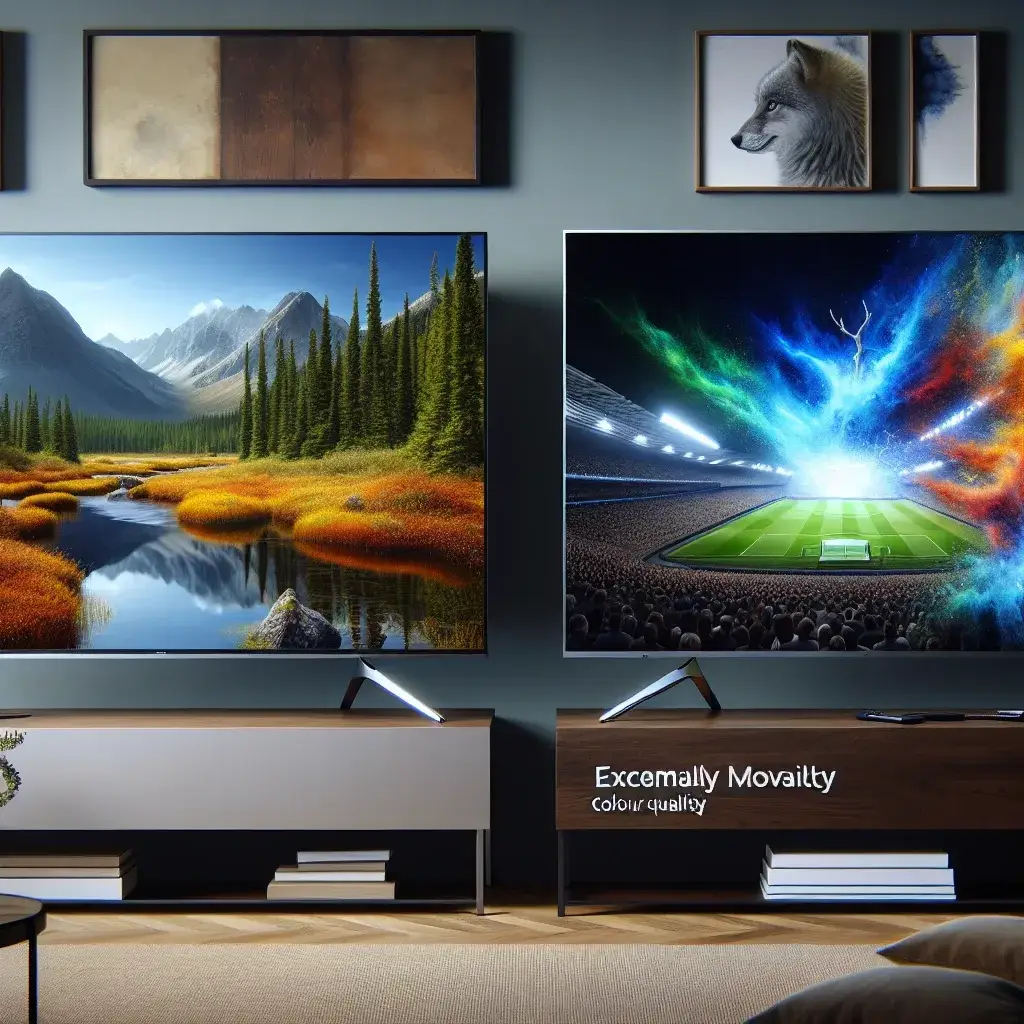Introduction
When it comes to choosing a new television, LG and Samsung are two of the most prominent brands that come to mind. Both companies offer state-of-the-art technology, exceptional picture quality, and a slew of smart features. However, deciding between the two can be challenging. This article aims to provide a detailed comparison of LG and Samsung TVs to help you make an informed decision.
Picture Quality
LG TVs
LG is well-known for its OLED technology, which offers unparalleled black levels and contrast. OLED TVs provide perfect blacks, improved response times, and a wider viewing angle, making them ideal for a cinematic experience.
Samsung TVs
Samsung, on the other hand, specializes in QLED technology. QLED stands for Quantum Dot LED, which enhances color accuracy and brightness. While QLED TVs may not achieve the perfect blacks of OLEDs, they perform exceptionally well in bright rooms and offer longer lifespan.
Smart Features
LG Smart TV
LG’s webOS platform is renowned for its user-friendly interface and seamless navigation. The Magic Remote with its point-and-click functionality simplifies the user experience. Additionally, voice control through ThinQ AI and compatibility with Google Assistant and Alexa add to its convenience.
Samsung Smart TV
Samsung’s Tizen OS also offers a smooth user interface, making it easy to access a variety of apps and services. Samsung TVs come with Bixby voice assistant, and most models are compatible with Google Assistant and Alexa. The Smart Hub interface on Samsung TVs provides a centralized location for all your entertainment needs.
Design
LG Design
LG televisions often feature sleek designs with ultra-thin bezels, providing a modern and elegant look. The use of high-quality materials ensures durability and a premium feel. The Gallery Series, in particular, can be mounted flush against the wall to resemble a piece of art.
Samsung Design
Samsung places a strong emphasis on design, with models that range from minimalistic to unique. The Frame series, for instance, doubles as artwork when not in use, blending seamlessly with home decor. Samsung’s One Connect Box helps to reduce clutter by housing all connections in a separate box.
Pricing
LG and Samsung offer a range of models across different price points. Generally, OLED TVs from LG tend to be more expensive due to their advanced technology. Samsung’s QLED TVs are often more affordable but still deliver high performance. Both brands frequently offer discounts and promotions, so it’s wise to keep an eye out for deals.
Conclusion
Both LG and Samsung offer exceptional TVs with their own unique strengths. LG’s OLED technology is perfect for those seeking the best picture quality, while Samsung’s QLED TVs are ideal for bright environments and longer lifespan. Your choice will ultimately depend on your specific needs, preferences, and budget.
For more information on the latest models and features, visit the official LG and Samsung websites.

